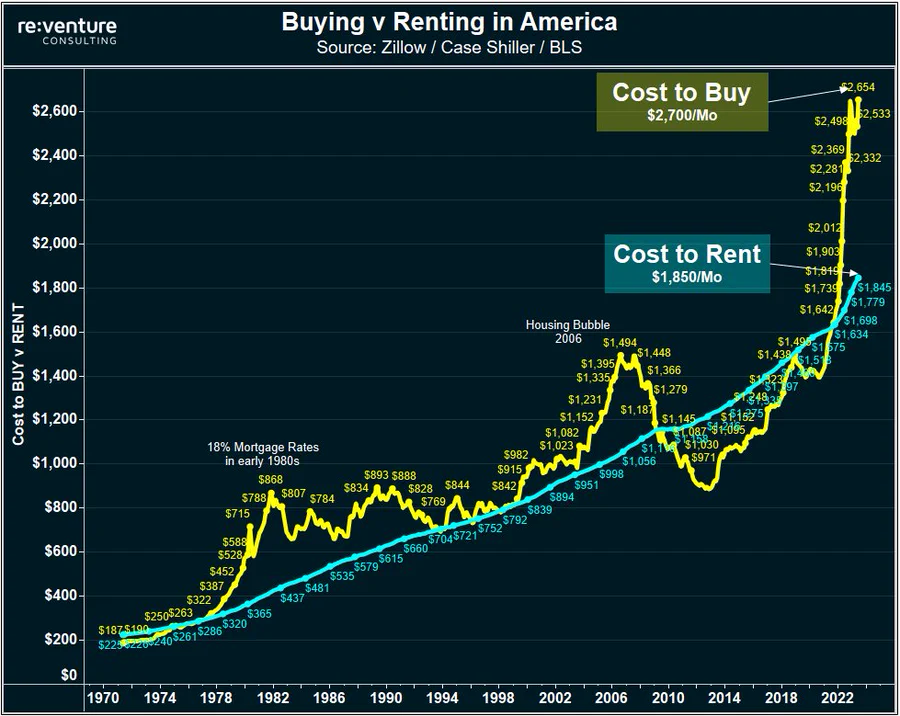It's another no U.S. data summer Friday. Yields are down to start the day with the 2Y down 2bps to 4.91% and 10Y down 5bps to 4.23% UK retail sales came in weaker than expected at -1.2%, EU inflation came in at 5.3% (lowest since Jan 2022), while Japan inflation came in above expectations at 3.3% on headline. Of course China remains a concern this week and it feels a little risk-off into the weekend.
All investors seem to be aware of the risk in China, but in case you need a reminder, Biden called its economy a "ticking time-bomb" and Ray Dalio said China needs to "follow this beautiful deleveraging process now because the debt-burdended balance sheets and burdensome debt service payments are freezing the economy." Given we've all known about some debt issues in China, why is all of this still news? Evergrande has been in the news for like a year? Is any of this "new" information or are we just past the idea that prices "fully reflect" all available information (any form of efficient market hypothesis)?
Speaking of concepts that feel somewhat forgotten, it feels like the concept of Equity Risk Premium is something forgotten that will soon become a topic of discussion, in much the same way that "Term Premium" has returned to a point of discussion for bond investors. "Term Premium" in Treasury bonds is defined as the compensation that investors require to compensate them for the risk that interest rates may change over the life of the bond. It would seem that more uncertainty for the path of Fed policy would result in higher term premiums (though it doesn't appear there has been much impact yet on term premiums) For stock investors, as yields rise it's clear you discount future cash flows by an increasing amount, however, the question becomes: are yields rising because the economy is stronger and therefore you expect equities to deliver more cash flow in the future or are other monetary and fiscal factors solely responsible for rising risk-free rates? Setting that aside, the Equity Risk Premium is the extra amount you need to discount cash flows from a stock to compensate you as an investor in the stock fairly for the risk of that stock. Given the inherent uncertainty in the macroeconomy at present it would seem risk premiums might rise. In short, stocks seem to fall when it turns out the discount rate used to support their price is too low and it’s difficult to estimate the correct premium ex-ante.
TTOD: "Multiple compression is a bitch." - Benjamin C. Spero
TTOD: Bitcoin "flash crash?" Fell $2,000 in minutes. No idea why. Working to find out.
TTOD: “Pessimism about China is becoming entrenched. In Bank of America’s latest Asia fund manager survey from early Aug, 84% of respondents said they believed Chinese equities were in the middle of a structural derating—in other words, a lasting contraction in the proportion of overall investment allocated to the country’s stocks.
TTOD: "Neutral rates?" New definition time: The rate at which the economy is neither expanding or contracting, and the rate at which non-banks and banks can compete on level playing field for lending market share.
TTOD: The FOMC may soon be setting monetary policy for Argentina. This sounds drastic but if the alternative is ongoing hyperinflation then it would be an improvement. The key issue, IMHO, is whether the Argentina government can credibly commit to dollarization.
TTOD: This is deep in the economic weeds, but I just saw the SF Fed blog arguing that household excess saving will be depleted soon. I doubt it. We estimate excess saving will end the quarter at close to $1 trillion. The more excess saving the more resilient the consumer and economy.
TTOD: Everything in this @NewYorkFed remote work survey is interesting, but this especially: Business leaders mostly don't expect to pull back from offices further.
TTOD: It’s going to be pretty freaking hilarious when there’s an NYC office space shortage in like 12 years
TTOD: A brand new mini-continent is found. It is rapidly populated, and you are made supreme leader.
How do you get a monetary system started?
TTOD: Succession director Mark Mylod still worries about Kendall Roy
TTOD: Fewer relationships, nurtured genuinely, yield richer emotional dividends.
